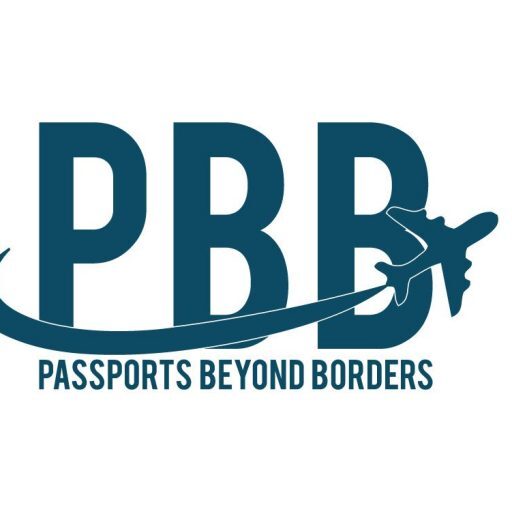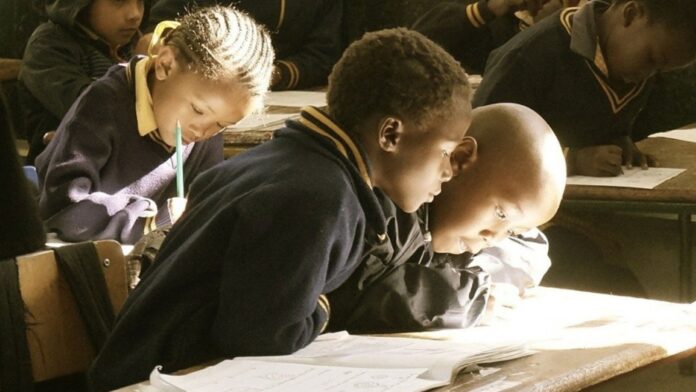We cannot discuss education without making it clear that it is not just the classical formal education we have but those we have in our homes as well. Education starts from our homes and the lessons learnt from infantry are just perfected either wrongly or rightly at the formal level. African culture regardless of the country has a huge impact on what we have become today and that is a form of education.
Table of Contents
The forgotten Infantry Education
Imagine just for a moment the mentalities of “entitlement to being supported” we are indoctrinated with from our homes even before we get to school. We are conditioned right from our homes, by our society, that those whom we consider to be well-off, are the ones we need to look up to, to solve our problems. A kid growing up is told about the well-off uncle, aunty, brother, sister, cousin, who can “help” them. They are never told that they need to be of value to complement this relative or any other person for that matter, and that is how they too can tap opportunities for growth. A student in school is told to work hard, because the certificate they will get, will be their “license”, an entitlement to a well-paying job. From where they can start to enjoy life. They are never told, that the certificate they get, is actually a responsibility bequeathed on them, to become solutions providers and devise solutions to the challenges in their society – in their communities, villages, provinces, country.
The certificate you get is a responsibility bequeathed on you to become a solution provider to your community, village, province or country.
We must start by solving these vices in our homes before we can tackle the formal education failure and solve them, a complete reset is called upon from each of us. And that reset is in three critical steps – first is finding purpose. The second is contextualizing this purpose to our surrounding, our society. And from there, then comes the reward
Formalizing a Mismatch and a Not Fit for Purpose Educational system
It’s clear from every indication that Africa’s education system needs total revamping else it will not be fit for purpose to solve today’s and tomorrow’s problems. Education curricula need to be reformed to reflect an African ideology; contextualized to Africa’s accurate history and circumstances, Africa-centric, centred on solving the continent’s contemporary challenges, while technically benchmarking against global best practices, thus becoming globally competitive. Universities and colleges should introduce programmes that directly contribute to solving contemporary developmental challenges, such as infrastructure and healthcare deficits, with the social sciences and arts building the right mental attitude to enable Africans to define an intellectual cause for their education.
A deep-seated malady in Africa’s development policy that traces its roots to educational foundations was summed up in 2018 in– a quote from Ghanaian President Nana Akufo-Ado –
“If we make our policies dependent on other people, when their policies change we will suffer. But, if we make the policy for ourselves, then it means that, at all times, we will be in control of our own destiny”.
Translated to our education, our school curricula have not developed much and are still based on a colonial system – where the focus was more to build human capital to serve others interest – not to drive continental development. As a result, there is a significant disconnect between the challenges faced in the continent and the ability of people who have gone through the educational systems to solve those challenges.
Theoretical vs Problem-solving Mismatch Education
Scientific knowledge for instance is learned in a purely theoretical context with minimal exposure to real-world problem-solving. Truth is, getting the theory right, is just the first step. This theoretical knowledge must then be put to the test in devising practical workable solutions in the context of the challenges and opportunities that exist in this continent. The lack of alignment of the education sector to contemporary opportunities is limiting the employability of African graduates. It is documented for instance, that most educated people in Africa confront a mismatch between their training and available opportunities. As an example, a recorded case in South Africa revealed that while firms report 600,000 vacancies, 800,000 young university graduates remain unemployed because their skills set does not match what is needed. A more glaring example is in Africa’s agro-value chains. Up to $48 billion is lost annually as postharvest losses for lack of value addition. To cover for deficits, food worth up to $35billion is imported each year. Cumulatively, this is over $80 billion worth of annual opportunities going down the drain every year.
Focused skills-based training on how to solve these challenges will go a long way in reversing these losses and creating multiple enterprise opportunities. For example, Cameroon loses in excess of 6million CFA in tomato postharvest losses because of a lack of cold storage solutions near-production area. Over 4billion CFA in rice among key areas because of lack of efficient drying solutions. Yet, if processing and value addition is prioritised, over 1.5million jobs can be created annually in tomato processing alone. Focused skills-based training to technicians & engineers to use their theoretical knowledge in design, circuitry, thermodynamics etc, but this time targeted at fabricating solar fridges and driers that can operate in the local conditions in Cameroon will not only be reversing these post-harvest losses but turning them into enterprise opportunities not only for farmers but the entire sub-sector & supply chain of solar power cold storage solutions. But the trigger for this is that Africa’s education system must churn out skilled personnel who can devise these solutions.
The urgently Needed Education Policy for Africa
Africa’s education policy must prioritize training manpower to tap into the agro-value chain, towards its full industrialization since it is not only a leading challenging area for the continent but also one that offers the best comparative advantage for the continent to ascend into global competitiveness. Focus should move beyond being satisfied with theoretical proficiency – which is only the first step – to tying this theory to developing practical solutions in areas focused on the continents challenges and most strategic opportunities. For this in addition to fostering enabling policy through refining and overhauling curricula as needed- where mainstreaming entrepreneurship education in the entire curriculum so we can truly refine what it means to be entrepreneurial; hands-on mentorship where graduates are taken through structural guidance, to improve, refine, and align the skills they have to tap opportunities in the strategic area of sustainably industrializing the continents agro-value chains is another key action. Here, we are already providing this structural guidance to youth through what is called Innovative Volunteerism. Here, youth are guided to leverage the skills they have as a premium to forge partnerships with their contemporaries in other disciplines and collectively complement their skills & be guided as a team to tap in closing inefficiencies along Africa’s agro-value chains. In Kenya for instance, youth with skills in marketing, clean energy and ICT have been guided to complement their skills and come up with an application called EBAGroPamoja that links agro-value chain actors to productivity solutions in organic inputs, clean energy to power processing & reverse PHLs, financing to recapitalize their enterprises, logistics to link effectively to markets, niche consumer markets among key intervening areas – all at the comfort their smartphones and computers. Through EBAgroPamoja, these youth are on track to convert Kenya’s $500 million worth annual agro-value chain inefficiency losses to food-secure homes, enterprise opportunities for actors in different areas – from agriculture to clean energy to logistics to finance etc., and at the same time earning their livelihoods through this connectivity solution. There are many other examples in Ghana, Nigeria, Uganda, Cameroon, Gambia, Togo, DRC, Zimbabwe, Benin, Senegal, Cote d’Ivoire etc.
So the suggestion is to focus on going beyond theoretical proficiency in all disciplines and proceed to tie theory to problem-solving & opportunities tapping in strategic areas like industrializing Africa’s agro-value chains. This being achievable through policy actions in refining curriculum while benchmarking with best global standards and through investing in mentorship hubs as is happening with Innovative Volunteerism where those already out of the formal schooling can be guided to enhance their skills set and apply theoretical knowledge to solve challenges in strategic areas for the continent & countries. The writing is on the wall – skills enhancement is the way to solving Africa’s productivity challenges and enhancing our global competitiveness and the formulation of educational policy that can be fit for purpose in Africa should leverage this thinking.
The views expressed here are those of the author and do not necessarily represent those of the institution with which he is affiliated.


Nice one our education cannot depend on others policy.
You are perfectly right sir. Our colonial system of miseducation is obsolete in the 21st century. This explains why people climb the academic lader and reach the apex but still remain liabilities to the family and the state. Is a pity indeed but our policy makers can’t escape our pointing fingers for the state of affairs.